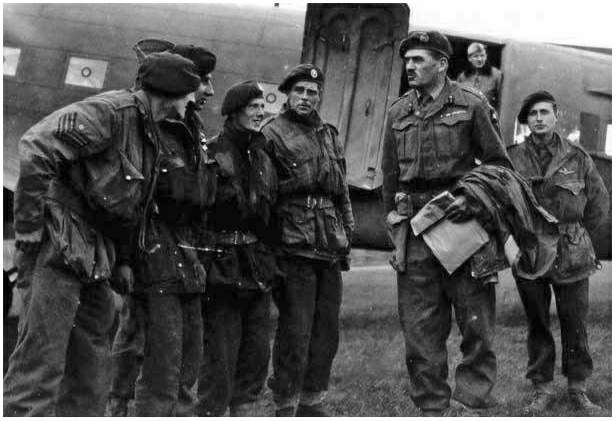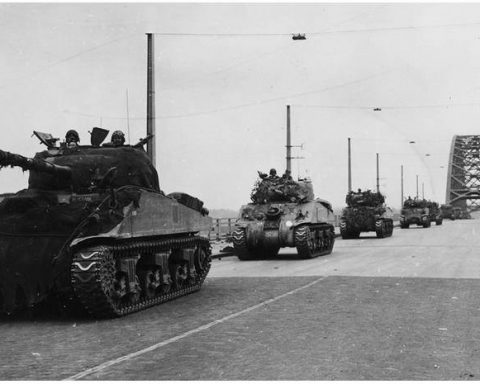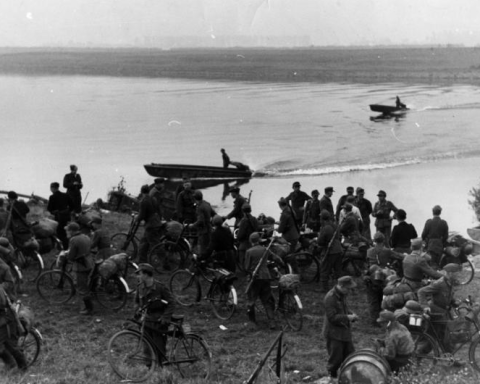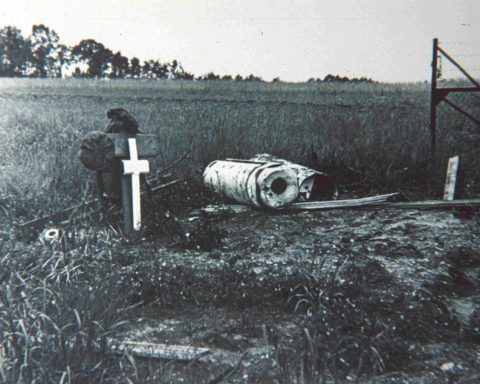Operation Market Garden culminated in the last Allied defeat of World War II. Many reasons were put forward after the Battle of Arnhem to explain the loss of the Battle of Arnhem.
Here you will find part 1 with the first five reasons why Operation Market Garden failed. Below are five more reasons.
6. Browning wants to join
General Frederick “Boy” Browning was one of the authors of the plan for Market Garden. Browning was in command of the Allied airborne soldiers during the battle. Browning was a staff officer who hadn’t been near the front during the war, which he desperately wanted.
If Market Garden ended in success, the war would be over by christmas 1944. In Browning’s eyes, this was the last chance to see his part of the action. And so Browning, along with his 500-man headquarters, wanted to come to Nijmegen.
In fact, there was no useful reason for Browning to fly his headquarters to Nijmegen. Leading Market Garden could just as well have been conducted, perhaps better, from England. But Browning persisted. The dozens of planes sacrificed to bring Browning’s headquarters to Nijmegen would have been much more useful if the British Airborne Division had been able to use them to land more soldiers at Wolfheze on Sunday, September 17.
7. Not a priority for the Waal Bridge
Browning played a negative role in Market Garden’s failure in yet another way. Although the conquest of the Waal Bridge was the main objective of the landings near Nijmegen, General James Gavin of the 82nd Airborne Division k received a completely different list of priorities from Browning when his division had landed at Groesbeek.
The Americans first had to occupy the hills near Groesbeek. The second goal was the bridge at Grave over the Maas. The third goal was three minor bridges in Nijmegen itself over the Maas-Waal canal. At the very bottom of Browning’s list of priorities was the conquest of the Waal Bridge.
Only in the evening of September 17, General Gavin was therefore able to send two companies to the Waal Bridge. At that time, the Waal Bridge was heavily defended by fresh German reinforcements that had just arrived from Arnhem. If Gavin had moved up to the Waal Bridge immediately after landing, he would have found the bridge virtually undefended and could have easily secured it for the Allies.
Now it took until the evening of Wednesday September 20, three days later, for the Waal Bridge to be captured by the Allies after heavy fighting. It was too late. The Rhine Bridge in Arnhem was just back in German hands at that time.
8. Wrong radios
The British Airborne Division discovered after the airborne landings on september 17 that they were equiped with the wrong radios. The radio sets they had brought with them had a range that was not far enough to keep in contact with all units. Because the landing areas and the main target of the operation were more than 9 miles apart, the distance between the different units was often more than a few miles. And that was too far for the range of the British radios. The problem was exacerbated by the trees and buildings in the area around Arnhem.
Poor communication remained a problem for the British until they were driven back into a small perimeter in Oosterbeek. Within the perimeter, the distances were small and the radios functioned well.
There were also communication problems between the troops on the ground in Oosterbeek and the aircrafts of the RAF. Because the airborne soldiers were unable to reach the Dakota transport planes, many supplies ended up with the Germans. The British only received ten percent of all supplies that were dropped.
9. Slow advance XXX Corps
Despite all the difficulties that the British Airborne Division in Arnhem had in achieving its goals, Operation Market Garden would have turned out quite differently if the ground forces of XXX Corps had reached the Rhine within 48 hours, as ordered.
Ultimately, the front units of the Allied ground troops did not reach the Poles that had landed at Driel until Thursday 21 September. More than two days late.
General Horrocks, the commander of XXX Corps, did not seem to realize the importance of advancing to Arnhem as soon as possible. A striking example is that he had the first day of the advance to Arnhem halted in Valkenswaard, while at the bridge near Son the genius of XXX Corps was needed to build a Bailey bridge.
The delay of XXX Corps is not only due to the sometimes fickle action of General Horrocks. The Germans took full advantage of a major weakness in the plan. The front line between Eindhoven and Arnhem was 75 kilometers long and 10 meters wide. The Germans managed to occupy the corridor regularly throughout the week, interrupting the supply of troops and equipment to the north for hours, and in some cases for days.
10. Importance of the foot ferry in Driel is underestimated
After the British advance to Arnhem was stopped on Tuesday September 19, the British withdrew to Oosterbeek. A perimeter of a few kilometers was created around the Hartenstein Hotel. The British airborne soldiers initially also occupied the Westerbouwing; a hill that overlooked the landing site of the Driel foot ferry.
Although the Driel foot ferry was not a bridge over the Rhine, it was a useful link to the south bank, along which troops and equipment could be easily transported.
However, General Urquhart underestimated the importance of the ferry. As a result, the Germans were able to get hold of the Westerbouwing and the berth of the ferry with a powerful attack on Thursday September 21.
The Poles, who landed near Driel later that day, therefore had no good opportunity to transfer soldiers across the river to relieve the besieged British in Oosterbeek. The ground troops of XXX corps, that arrived as well in the last phase of Market Garden also had few options for reaching the British.
When the Polish general Sosabowski drove in Nijmegen on Saturday September 23 for an interview with General Browning, he noticed something.
“A Polish officer would certainly not forget to take boats if he had to cross only one river with his unit. Let alone six major water hurdles. And what did General Horrocks and all his generals do? Hundreds of trucks drove here, but not trucks in Nijmegen with boats. Did all generals forget the boats?”




